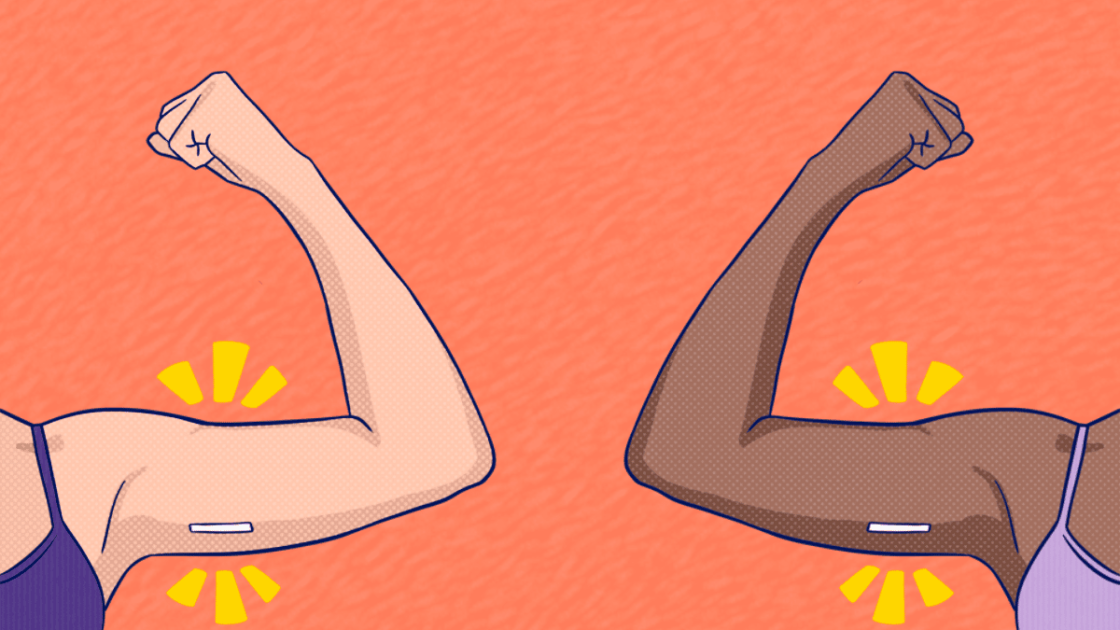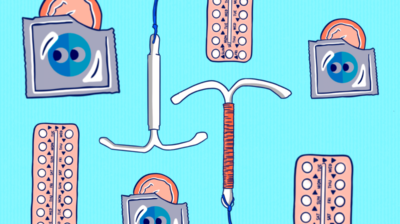What is the contraceptive implant?
The implant might suit you if you prefer not to take medication daily

The Implant is a small tube fitted under your upper arm skin that releases the hormone progestogen into your blood. It is a semi-permanent form of contraception that lasts up to three years.
Implants work by preventing the release of an egg (ovulation) and by increasing cervical mucus, which prevents sperm from meeting the egg (on the rare chance that an egg is released). They also thin the lining of your womb. They are 99% effective in preventing pregnancy.
A doctor fits an implant during your period. The process takes about 10 minutes and is done under local anaesthetic. You can get the contraceptive implant for free if you are between the ages of 17-35 in Ireland.
What are the benefits of the contraceptive implant?
- You can breastfeed with an implant
- It can be removed at any time
- It is one of the most effective contraceptives around, with an effectiveness rating of 99%
- It last up to three years
- Once it is inserted you do not have to do anything else for it to work
How is the contraceptive implant fitted?
If you want to get the implant you will need to book an appointment with your GP or at a sexual health clinic. Implants should always be fitted by a trained doctor or nurse, and usually during the first five days of your period
To get the implant:
- The doctor or nurse will numb your arm with some local anaesthetic (it will numb the pain, but you won’t be asleep)
- They will then place the tube under the skin of your arm, using a special needle
- It should only take a few minutes
- You may get some temporary bruising or swelling in your arm afterwards, though most people do not
Things to keep in mind with the contraceptive implant
- Implants often cause irregular or even totally absent periods during the first year
- Some also have continuous bleeding while on the implant
- There can be side effects such as acne (spots), dizziness, abdominal pain, weight gain, headaches, mood changes and tender breasts
- The implant may cause mild insulin resistance, a condition where the body does not respond normally to the hormone insulin – this hormone controls blood sugar levels
- You can feel the implants under your skin and sometimes see them
- Certain medications can interfere with the effectiveness of the implant, always check with your pharmacist before taking any new medication
Protecting your sexual health when on contraception
If you chose to go on the implant, this will only help prevent pregnancy, but you will still need to protect yourself from STIs and HIV. There are many great options to help protect your sexual health, but none of them are 100% effective. Even if you use condoms every time you have penetrative sex, you are still at risk of getting genital warts and herpes, as these can be passed through skin-to-skin contact. Going for an STI check or taking a home STI testing kit with a partner before having sex, can be a great way of protecting yourself and those you have sex with against STIs and HIV. However, not all STI checks check for all STIs, so it is important to speak to your healthcare provider and ask them what are being tested for as part of your screening.
Discussing with your sexual partners the type of contraception or protection options available to you, and agreeing on a type that works for everyone involved can help to reduce the risk of pregnancy, STIs and HIV. Looking out for sores or symptoms on a partner’s genitals before having sex with them, can help to identify STIs that they may not be aware of. If you do see any signs that someone may have an STI, do not have sex with them until you know for certain it is safe to do so. Asking someone about their sexual health history is the responsible thing to do before having sex, and it should not be taken as an insult if someone asks you about yours.
Remember: The age of sexual consent in Ireland is 17. If you’re over 16, you can consent to medical treatment including any treatment or tests needed.
Feeling overwhelmed and want to talk to someone?
- Get anonymous support 24/7 with our text message support service
- Connect with a trained volunteer who will listen to you, and help you to move forward feeling better
- Whatsapp us now or free-text SPUNOUT to 50808 to begin.
- Find out more about our text message support service
If you are a customer of the 48 or An Post network or cannot get through using the ‘50808’ short code please text HELLO to 086 1800 280 (standard message rates may apply). Some smaller networks do not support short codes like ‘50808’.






